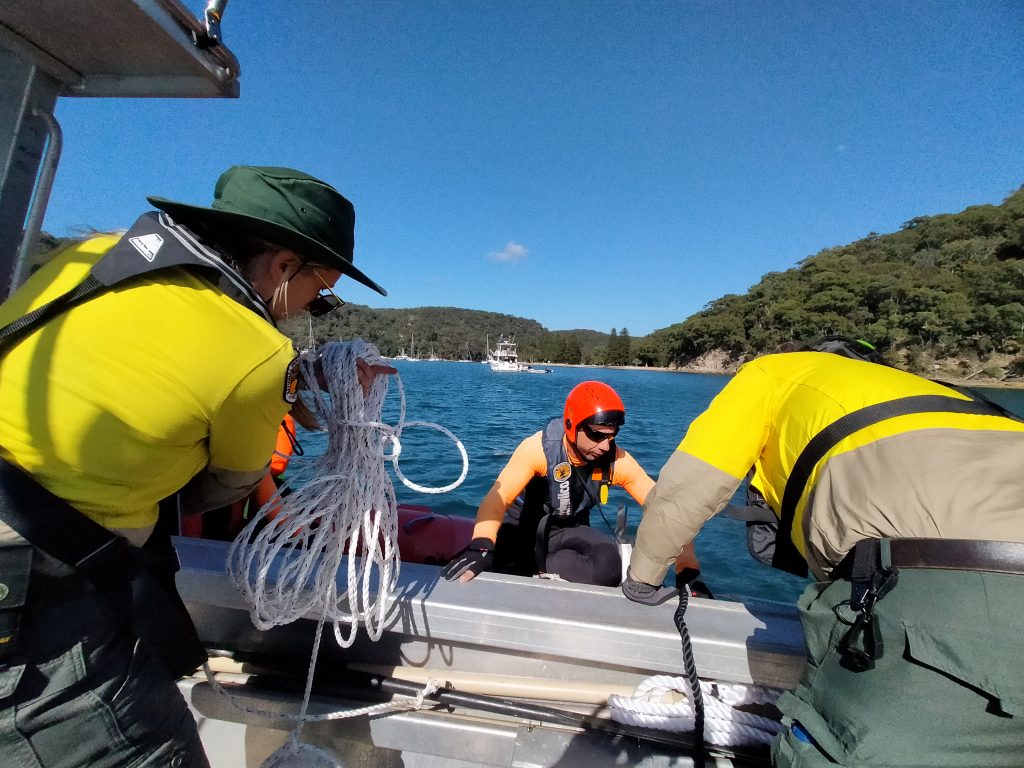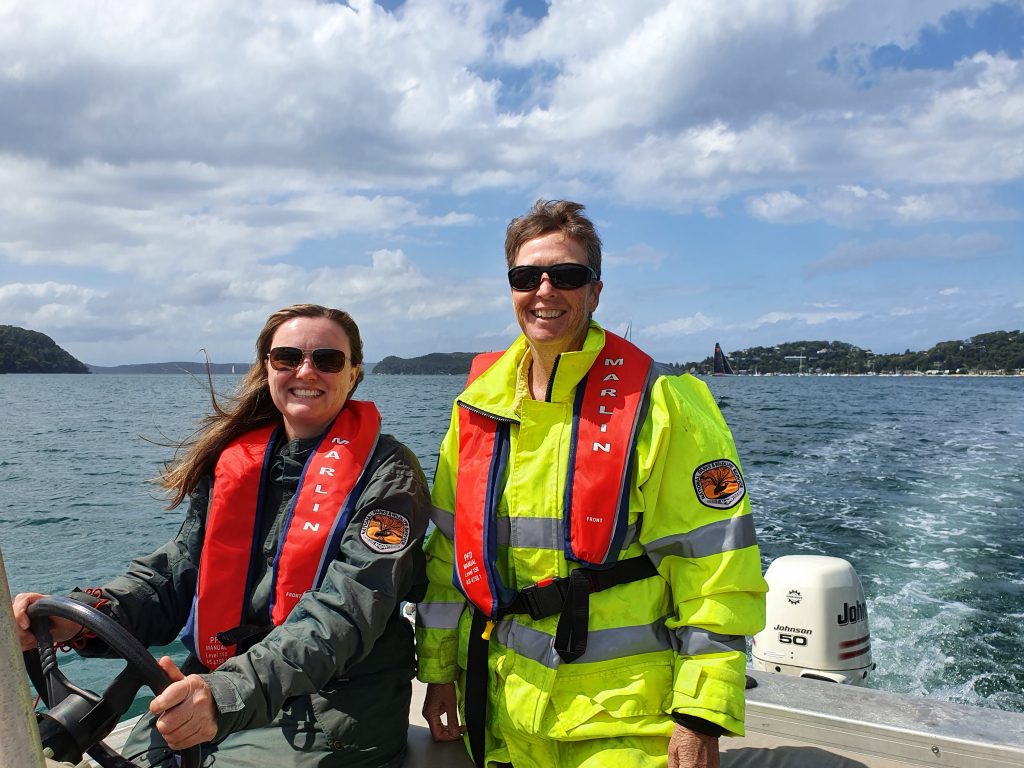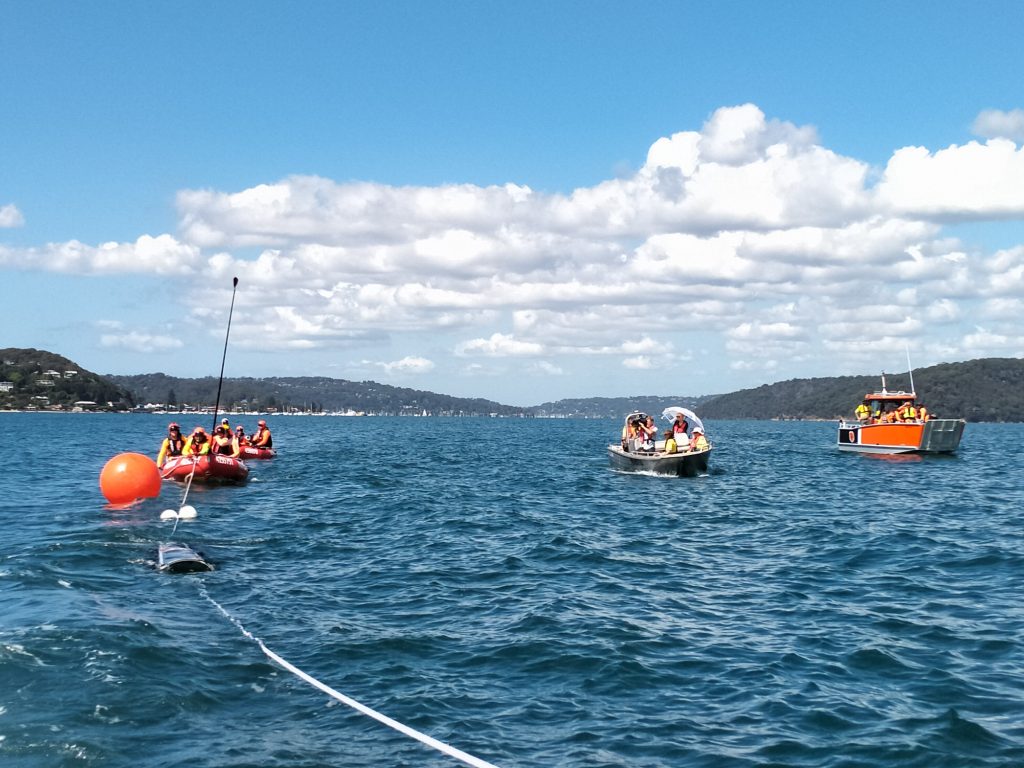The NSW National Parks and Wildlife Service (NPWS) reports that annual whale count numbers have been steadily increasing by around 10 per cent each year, which is extremely good news. But with more whales moving along our coast more are also becoming entangled in fishing lines, washing up onto beaches, or getting struck by boats.
A NPWS specialist whale disentanglement team now trains every year ahead of the whale migration season (from June), and were out on the water recently honing their skills.
Mel Hall from the NPWS said around 20 staff undertook training on how to safely free a large whale tangled in ropes and buoys.

“Any attempt to disentangle a distressed whale is inherently dangerous and complicated by changing sea conditions, the enormous size of the whale and its instinctive behaviours,” said Ms Hall.
“Only highly trained, specialist teams should attempt to free a trapped whale and our goal with this training is to make sure our staff are equipped and ready to respond.
“Just before the humpback migration season every year we undertake this 2-day training that includes working in inflatable vessels to free a four-metre inflatable ‘whale tail’ entangled in lines and ropes.
“Staff are also trained to attach satellite tracking devices to an entangled animal to help teams track and relocate the whale in case an immediate rescue is not possible.
“The team’s surf skills are also put to the test to make sure we have the most experienced and capable rescue team on the job,” said Ms Hall.
Last year NPWS successfully freed an entangled humpback whale off Royal National Park.
“This was a long and complex operation where rescue crews relied on their training and experience to safely cut the animal free from lines and ropes around its head and tail,” said Ms Hall.
“We were fortunate that the conditions were right for the NPWS team to safety launch vessels, approach the whale and cut it free,” said Ms Hall.

The annual whale count numbers have been steadily increasing by around 10 per cent each year, which is extremely good news, Ms Hall said.
“The best way for people to help these animals is to immediately report any sightings of entangled or distressed whales to authorities.
“Anyone who sees a distressed or entangled whale should not attempt to free it but call NPWS on 13000-PARKS or ORRCA on 9415 3333,” said Ms Hall.
ORRCA, or the Organisation for the Rescue and research of Cetaceans in Australia, became well-known on the Beaches recently because of their heavy involvement in tracking Reg the Australian fur seal, who frequented our beaches throughout summer. You can see our interview with ORRCA’s Jools Farrel here.

The Sydney based NPWS whale disentanglement team is one of several along the NSW coast trained to intervene if an animal is reported in distress.
The official whale watching season kicks off on June 1 during which local communities along the NSW coast play host to these extraordinary creatures on their 5,000 kilometre journey from Antarctica to Queensland waters.



